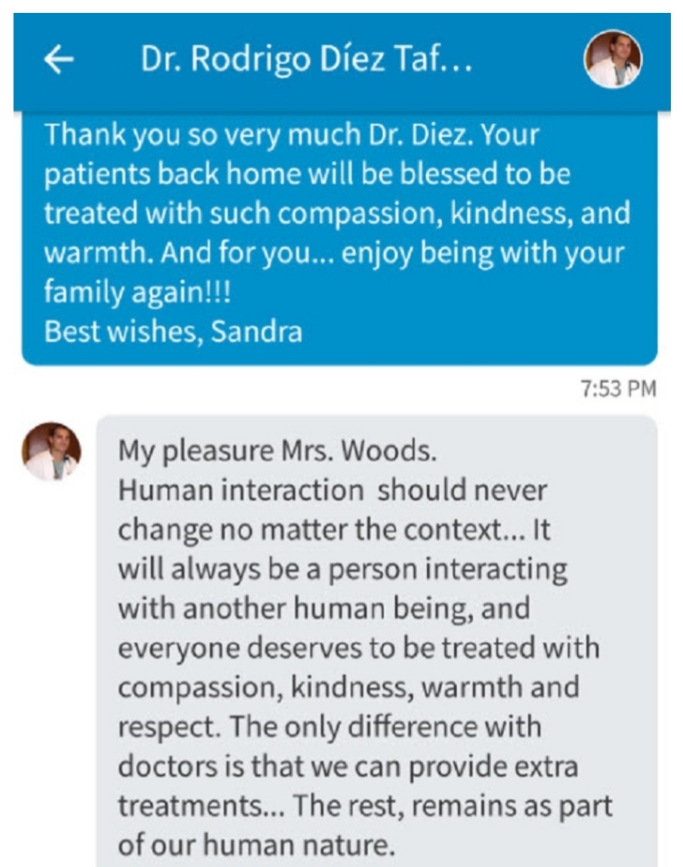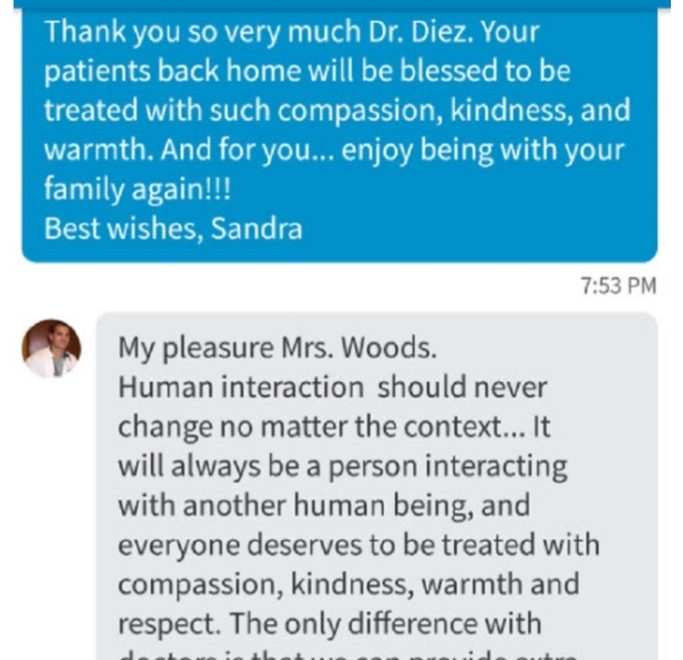At the end of this month, the specialist physician who’d been treating me during his one-year Fellowship – at one of Montreal’s many university teaching hospitals – moved back home to another country.
Dr. Díez Tafur been away from his wife and young son for almost a year, on different continents; sacrificing his personal life to increase his medical expertise and knowledge base. So that he could better treat patients, like me.
(Fellowship programs are often win-win situations for specialists and local patients; a doctor is given an opportunity to learn new skills, and to practice them under close supervision, usually for between 6 months to two years.
During that time, local patients have access to this additional physician. This reduces the wait time to see a specialist; allowing specialized hospital departments or clinics to treat more patients than they’d otherwise be able to accept.)
For my specialist, this was his third Fellowship or visiting-physician learning experience, but it was the first time his family hadn’t accompanied him. They’d had to stay behind, so that his son could start school.
Whenever I had an appointment with Dr. Díez Tafur, I’d ask this doctor about his son; his face would light up and he’d happily share the latest photo or funny story from a video chat with his family, all the while preparing me for the day’s medical procedure or assessment.
How did I know that he missed his family so much? I asked. Even when I’m ill or in pain, in what I call ‘patient mode’, I try to be kind. And I’m genuinely interested in other people, other cultures. When I meet someone ‘from away’, it’s as normal for me to ask about their home city or country as it is for me to breathe.
He hadn’t told me at the outset, though, that his family was back home. In the same way that you might gradually share information with a colleague you meet with every few weeks, within a couple of appointments we’d developed a friendly patient-physician relationship based on mutual respect and trust.
I’ve had the pleasure of this kind of very friendly relationship with many healthcare professionals, although most of them don’t use social media; this doesn’t seem to be as popular with physicians in Canada as it is in other parts of the world.
The fact that Dr. Díez Tafur uses social media made it easy for me to write him a note, once he’d moved back home and was no longer treating me, to wish him well and to thank him for his kindness and openness.
I’m sharing part of his response, because this paragraph he wrote sums up perfectly the kind of treatment I hope to receive as a patient. I’ve shared this on Twitter, and it seems to have resonated with many other rare disease patients, in terms of the way they’d like to be treated.
And yes, with my background in privacy, I asked Dr. Díez Tafur for his permission to post this exchange to social media – and eventually on my blog!

From a bioethics perspective, I’m sharing this with healthcare professionals not as a recommendation to befriend your patients, or share details of your personal life with them, but rather to show them the same warmth you would to a potential friend. To be at least as kind to a patient a you would be to a stranger.
Some patients may not be receptive to this type of interaction with a healthcare professional, but you’ll never know unless you try. Patients are unlikely to take the initiative, not wanting to ‘waste your time’ with kindness and pleasantries.
At a time when levels of burnout and depression among medical students, residents, physicians, and others working in healthcare are making the news(1)(2), wouldn’t a bit more kindness be a good thing? For all of us, for healthcare professionals and patients alike?
Human interaction should never change no matter the context… It will always be a person interacting with another human being, and everyone deserves to be treated with compassion, kindness, warmth and respect. The only difference with doctors is that we can provide extra treatments… The rest, remains as part of our human nature.” ~ Rodrigo Díez Tafur, MD, MSc, FIPP, EBPMR
References:
(1) Frellick, Marcia. Burnout Singeing All Levels of Medicine: Physicians, Nurses, Office Staff. Medscape; WebMD LLC. 28 Mar 2017. Web. http://www.medscape.com/viewarticle/877827
(2) Kirkey, Sharon. Wounded healers. National Post. 31 Mar 2017. Web. http://nationalpost.com/features/wounded-healers

